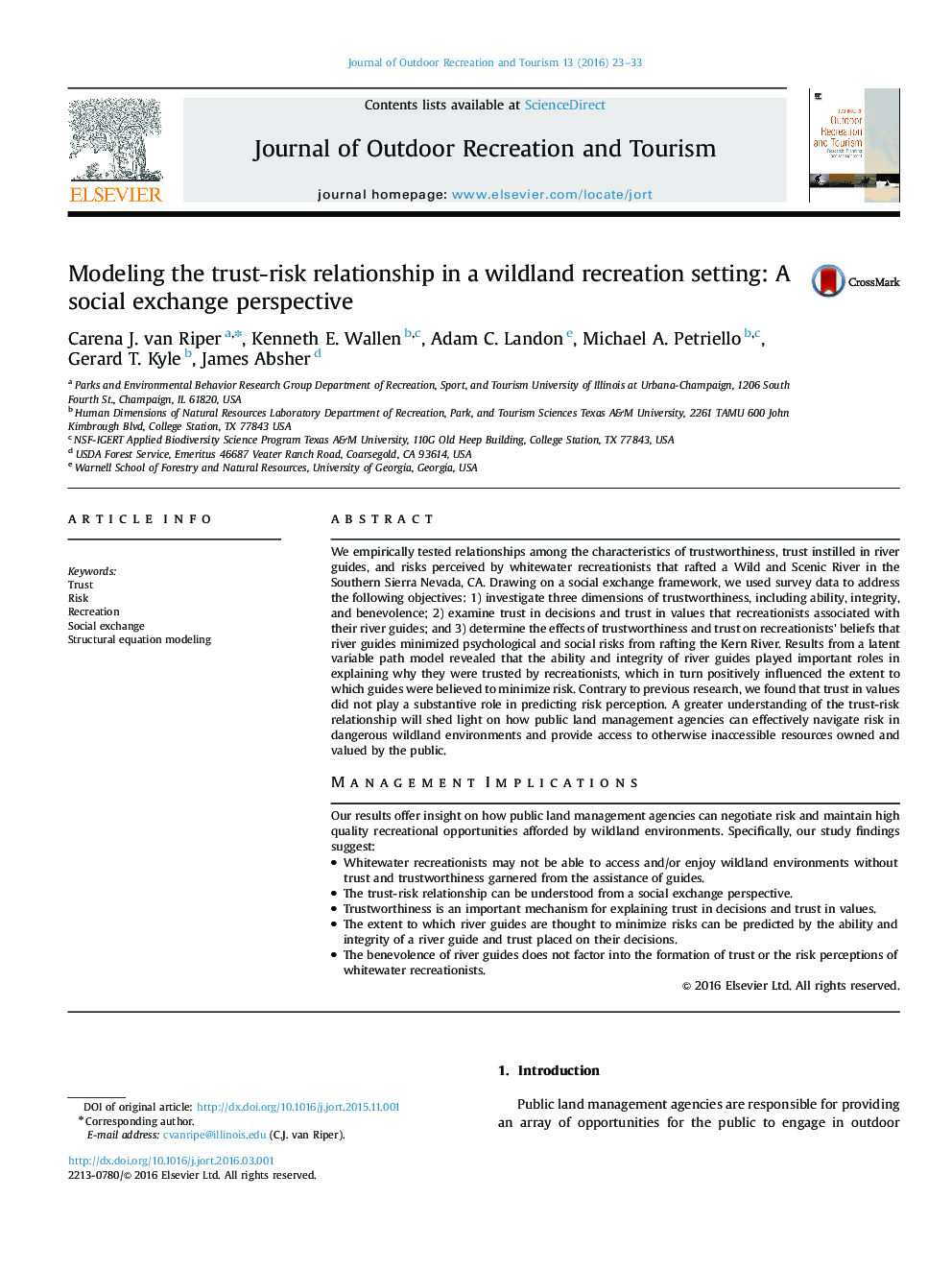| Article ID | Journal | Published Year | Pages | File Type |
|---|---|---|---|---|
| 92352 | Journal of Outdoor Recreation and Tourism | 2016 | 11 Pages |
We empirically tested relationships among the characteristics of trustworthiness, trust instilled in river guides, and risks perceived by whitewater recreationists that rafted a Wild and Scenic River in the Southern Sierra Nevada, CA. Drawing on a social exchange framework, we used survey data to address the following objectives: 1) investigate three dimensions of trustworthiness, including ability, integrity, and benevolence; 2) examine trust in decisions and trust in values that recreationists associated with their river guides; and 3) determine the effects of trustworthiness and trust on recreationists' beliefs that river guides minimized psychological and social risks from rafting the Kern River. Results from a latent variable path model revealed that the ability and integrity of river guides played important roles in explaining why they were trusted by recreationists, which in turn positively influenced the extent to which guides were believed to minimize risk. Contrary to previous research, we found that trust in values did not play a substantive role in predicting risk perception. A greater understanding of the trust-risk relationship will shed light on how public land management agencies can effectively navigate risk in dangerous wildland environments and provide access to otherwise inaccessible resources owned and valued by the public.Management ImplicationsOur results offer insight on how public land management agencies can negotiate risk and maintain high quality recreational opportunities afforded by wildland environments. Specifically, our study findings suggest:●Whitewater recreationists may not be able to access and/or enjoy wildland environments without trust and trustworthiness garnered from the assistance of guides.●The trust-risk relationship can be understood from a social exchange perspective.●Trustworthiness is an important mechanism for explaining trust in decisions and trust in values.●The extent to which river guides are thought to minimize risks can be predicted by the ability and integrity of a river guide and trust placed on their decisions.●The benevolence of river guides does not factor into the formation of trust or the risk perceptions of whitewater recreationists.
